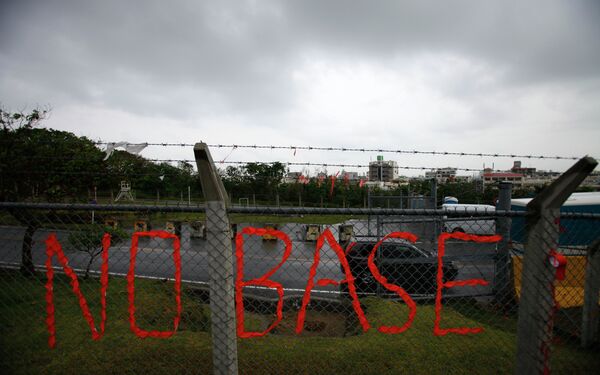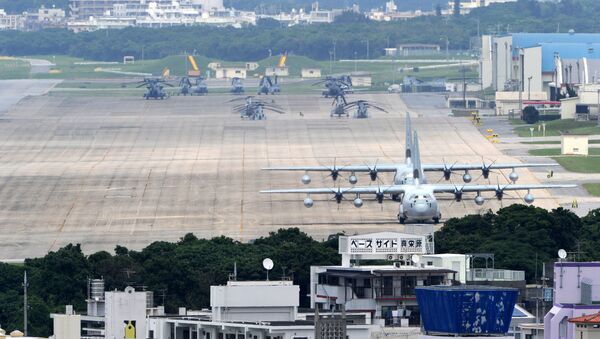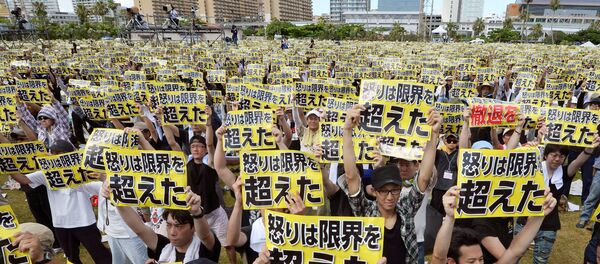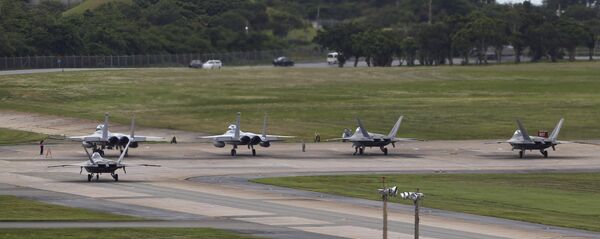Earlier in the day, it was reported that 27-year-old US Marine Sergeant Christopher Aaron Platt from Kadena Air Base had been arrested for drunk driving.
Platt was arrested days after a ban on servicemen drinking off-base had been lifted, which was imposed due to a string of criminal offenses by US troops stationed in Okinawa.
These include the alleged rape and murder of a 20-year-old local woman last month, allegedly by a US contractor and former Marine.
Last month 65,000 Okinawans protested against the presence of US bases in the prefecture, but in spite of their demonstrations, which also spread to Tokyo, it appears that the Japanese government is not willing to renegotiate its defense agreement with the US.
Andrey Fesyun, a professor in East Asian Studies at Russia's Higher School of Economics, told Sputnik that the cycle of American criminality and Japanese protests, with little sign of change, looks set to continue because the Japanese government sees the Okinawa issue from another point of view – the economic one.
"Okinawa is an unprofitable region of Japan, where almost nothing is produced. There are only a few assembly plants there which are not that significant from an economic point of view. There are a few large banana and sugar cane plantations which are also not very important for the Japanese economy," Fesyun explained.
"That's why the US bases provide more than 90 percent of Okinawa's regional income. More than 60 percent of Okinawan citizens work at the US bases in one way or another, mainly by supplying the bases or in communications."
Fesyun said that complaints about the conduct of US servicemen and calls to revise Japan's defense treaty with the US come more often from Japanese civil organizations or trade unions.

However, Fesyun said that the calls are likely to continue unheeded by the Japanese government.
"The Japanese government, in spite of the numerous violations that have even been criticized by the Americans, doesn't want to worsen its relations with the US over this. The Japanese government always promises to take steps, but, as a rule, it stops there."
"Japan itself pays for the upkeep of the US bases, which is a very important fact. In Germany for example, the US pays 100 percent of the cost for US troops to be stationed there. In South Korea, Seoul only partially pays for US troops to be stationed there," Pavlyatenko said.
"Japan is the only US strategic ally which itself bears a large part of the financial burden of the presence of US troops on its territory."
"The Japanese pay about 70 percent of the costs, including utility bills. The cost of US bases in Japan is part of the state budget, as is the salary for Japanese employees working at the bases. That's why they appeal to the Japanese government, not the Americans, when they want higher wages," Pavlyatenko explained.






